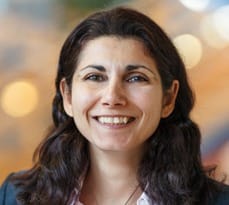
Google, YouTube, NBC Universal, National Theatre, National Trust, Art Finder, Saatchi & Saatchi – all homes to Cambridge MBA alumni who were prepared for a career in the global creative, arts and media industry by an unusual concentration of courses at Cambridge Judge Business School.
The Culture, Arts & Media Management or ‘CAMM’ concentration on the Cambridge MBA prepares students for a career in management in the burgeoning field of the creative industries, where, in the UK alone, employment is up 8.6 per cent (as of January 2014) – worth a total of 1.68 million jobs to the economy. But it’s not just for those with career ambitions in those industries – the package of courses and practical projects which form the concentration equip students to perform effectively on the boards of cultural, media and arts organisations, and allow others to bring the principles, innovations and creative problem-solving approaches of the arts world into other sectors. In the past few years we have seen MBAs from backgrounds such as Health and Finance undertaking this concentration.
One of the CAM concentration ‘Coaches’ is Becky Schutt, a strategic management consultant in the international arts sector:
The cultural/media sector is one of the fastest growing sectors worldwide. We know that not all of our students taking part in the concentration wish to go on to lead venues, creative companies or artistic initiatives. However, by having collaborative dialogue at this stage in their careers with their fellow classmates and with leaders in the sector, we hope this will lead to a new way of inter-disciplinary working, funding structures, and an evolved investment ethos in the sector in years to come.
Some of the world’s biggest arts organisations collaborate with Cambridge Judge to give students real-world practice and insight into management in this arena. Students in recent years have delivered case studies for SkyArts, the Tate, the UK’s National Theatre and CultureLabel, to name a few. These organisations engage with CAMM at a deep level, with Director-level participation in the projects and presentations made to senior management at the end of case studies. Leading lights from the industry and alumni now working for major players also regularly come to Cambridge Judge to speak to students about the challenges of a very challenging business, secure in the knowledge that ‘what happens in Cambridge stays in Cambridge’!
So, how did this particular specialism come about? It evolved out of the research and teaching of Cambridge Judge faculty member Dr Allègre Hadida. A lecturer in strategy and creative leadership, Hadida pioneered teaching and research on the creative industries in Cambridge Judge. A recipient of multiple MBA teaching awards, she is unusual in using materials and techniques from the arts world to help her students understand and execute strategy. Film and music clips, literature, graphic novels, etc. are all grist to the Hadida mill:
It gives the participants in the classroom an opportunity to step out of the traditional management role that they are used to, be more creative and understand that strategy is everywhere. So, for instance, I’m pretty confident that no one in the classroom is a mafia don or a Starfleet commander, yet I will use pieces from the Godfather or Star Trek to illustrate specific ideas in the discipline of strategy.
Hadida also includes media companies in her mainstream Strategy course for the Cambridge MBA, using ‘live’ company cases and allowing students to deliver their solutions directly to company bosses. Hadida also set up a ‘Creativity Workshop’ with Saatchi & Saatchi which ran on the MBA for six years. Her research, consulting and teaching work in the arts, media and entertainment industry led to the development of a strong relationship with the Entertainment Master Class (EMC), the peer-to-peer management academy for the international film, TV and entertainment industries. The EMC has recently decided to make Cambridge Judge Business School its permanent base for business and management learning and hosted its first Cambridge course in January 2014, with Hadida and other colleagues lecturing on strategy, leadership and innovation.

